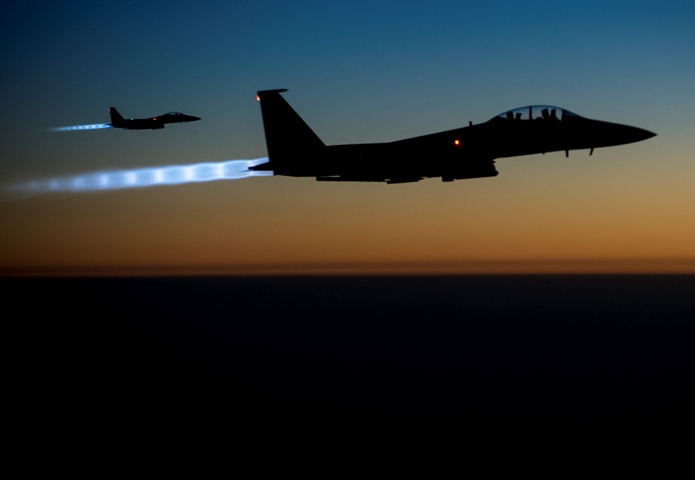Berlin and Paris in crisis talks to bring fighter jet project back on track
At the beginning of February, Merkel and Macron failed to settle the issue, thus leaving open when the next tranche of payments of at least 5 billion euros can be released, according to insiders. On Wednesday, envoys of the defence ministries of Germany, France, Spain as well as from Dassault, Airbus and Indra met in Paris to try to resolve the impasse, security and industry sources told Reuters.

- Country:
- Germany
Germany and France are making a new effort to resolve an impasse over the development of a joint fighter jet, Europe's biggest defence project that has led to tensions between Berlin and Paris, security and industry sources told Reuters on Wednesday. At an estimated cost of more than 100 billion euros, the venture brings together Germany, France and Spain to forge a future weapons system that is seen as the heart of a deepening European defence cooperation.
Dassault Aviation <AVMD,PA>, Airbus and Indra are supposed to build the aircraft, which is expected to be operational from 2040 with a view to replacing France's Rafale and Germany's Eurofighter warplanes over time. German Chancellor Angela Merkel and French President Emmanuel Macron kicked off the ambitious venture in 2017, when the EU was rattled by Britain's decision to leave the bloc and deeply divided over other issues such as the migrant crisis.
But the project has run into difficulties due to mistrust and differing visions between Berlin and Paris as well as corporate infighting over work shares, security and industry sources told Reuters. At the beginning of February, Merkel and Macron failed to settle the issue, thus leaving open when the next tranche of payments of at least 5 billion euros can be released, according to insiders.
On Wednesday, envoys of the defence ministries of Germany, France, Spain as well as from Dassault, Airbus and Indra met in Paris to try to resolve the impasse, security and industry sources told Reuters. Part of the controversy revolves around intellectual property rights, and who should possess them in the end.
Before moving ahead with the venture, Germany is trying to gain more concessions from France on the issue, insiders said, adding that Berlin would like to be able to use technologies co-developed with Paris for its own projects. One French source said Germany also aimed for intellectual property developed at national level in France, something a German source denied.
Disagreements run so deep that there are even considerations to build two demonstrators instead of just one, one source told Reuters. A senior French parliamentary figure also expressed doubts about the project's viability, citing diverging approaches and political constraints, such as Berlin’s refusal to participate in combat operations abroad.
"To be honest, it would be a lot easier for us to work with Britain because we share the same military culture," the MP told Reuters. Britain is running its own fighter jet program, Tempest, with Italy and Sweden. A planned update for the Franco-German Tiger combat helicopter, costing more than 5.5 billion euros, is another bone of contention.
France is keen on the modernisation, whereas Germany is digging in, with some parts of the military not wanting the upgrade at all given the low operational readiness of the Airbus helicopter, sources told Reuters. On Thursday, the defence ministers of France and Germany, Florence Parly and Annegret Kramp-Karrenbauer, will have another chance to solve the row, when they are scheduled to meet virtually. (Additional reporting by Tim Hepher; Editing by Giles Elgood)
(This story has not been edited by Devdiscourse staff and is auto-generated from a syndicated feed.)
ALSO READ
"Aiming for gold this time around": Para-athlete Yogesh Kathuniya ahead of Paris Para-Olympics 2024
Gymnastics-Three-times Olympic champion Whitlock to retire after Paris Games
Athletics-No guarantees of world record in Paris, says Warholm
Paris Olympics strike notices filed for public sector workers, CGT union says
Paris Olympics track and field gold winners to get USD 50,000: World Athletics










